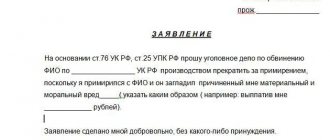According to the legislation of the Russian Federation, after a divorce, if there are minor children, the issue of their continued residence with one of the parents must be resolved. Regardless of the circumstances of a particular situation and how the case is handled, the interests of the child are a priority. In most cases, children stay with their mother as this helps provide them with the best possible upbringing. There are also cases where a child lives with his father after a divorce. Before initiating a divorce, it is necessary to study the law to see if there are provisions explaining whether the father can take the child from the mother.
Briefly about divorce and children
Divorce is a procedure for terminating an officially registered marriage relationship. Persons who are not legally married cannot initiate divorce proceedings, since their relationship, from the point of view of the law, is recognized as fictitious.
The legal provisions of the Russian Federation allow divorce through the civil registry office and the court. Spouses can take advantage of the first opportunity if they have reached an individual agreement on the division of property, they do not have common minor children, and there are no other disputes.
A petition for divorce must be sent to the court if the spouses have disagreements regarding the division of property and they cannot reach a consensus on their own. The presence of minor children is also a reason why the issue should be resolved through the courts. In such a situation, any agreement between the spouses regarding the residence of the children does not play a role.
From the age of ten, a child has the right to express his own opinion regarding his desire to live with one of his parents. If the child is between 10 and 14 years old, his opinion is taken into account (his legal capacity must be confirmed). After 14 years, from a legal point of view, the child reaches the age of consent. In this case, if he does not agree to live with one of the parents, his opinion must be taken into account without fail. Since the level of development of all children is different, the court pays attention to the child’s signs of legal capacity - the disposition to make his own adequate decisions.
Issues related to the termination of a marriage relationship, in the presence of children, can be considered in the magistrate or district (city) court. The choice of authority depends on the circumstances of a particular situation. In court proceedings, the final decision is given to the court or to the spouses. If they cannot independently agree and approve the terms of the agreement, the judge will make a verdict.
Where should the claim be filed?
Conflicts related to the place of residence of a child during a divorce are considered by city and district courts. The statement of claim is filed at the place of registration of the defendant or at the place of residence of the applicant, provided that the child lives with him.
It is worth noting that court hearings concerning the interests of children will not take place without representatives of the Public Educational Inspectorate. In addition, specialists with psychological and psychiatric education or teachers may be involved to clarify the details of the case and circumstances. This is required to find out the child’s wishes - with whom he wants to live. The conversation takes place either in the meeting room or in a calm environment without parental pressure.
As a conclusion, we note that the opinion of children who have reached the age of ten can become decisive for the court. Even experienced judges may have doubts about the placement of a child. And in this case, it is better to first ask a lawyer for free to build the correct line of defense and argumentation. Therefore, taking a child away from an ex-wife through the court is not an easy task, requiring careful preparation and the participation of competent specialists.
Parents' rights after divorce
Divorce is the termination of the relationship between the persons involved in it. This procedure does not in any way affect the relationship between parents and children. All rights and obligations assigned to them retain their legal and moral force.
After a divorce, the parent with whom the child no longer lives has the right to regularly see him and take part in his maintenance and upbringing. Moreover, the implementation of these actions is the direct responsibility of the parent, unless otherwise provided by a court decision. In some cases, a ban or partial restriction on communication between a parent and a child may be imposed. This is possible when the court considers that the presence of such a relationship infringes on the interests of the children. Regardless of this, the obligation to provide material maintenance remains.
In the absence of any restrictions, a parent living separately from a child after a divorce retains the right to receive inheritance and old-age alimony from the children. This prerogative can only be abolished by deprivation of parental rights.
Special circumstances
Mental illness
Courts take into account mental disabilities in one of the parents as a sufficient criterion for refusing to transfer children to them for upbringing. Therefore, a father who wants to take his children away because of the mother’s inadequacy will have to collect the following evidence:
- A copy of the medical record from the psychiatric institution where the spouse was treated. If you refuse to provide it, you should file a petition with the judge asking to request medical documents.
- Indications of the attending physician.
- Prescriptions for psychotropic drugs.
- Receipts for the purchase of psychotropic drugs.
- Witness's testimonies.
Incapacity or limited legal capacity
Incapacitated or partially capable people cannot raise children, since they themselves need the help of guardians or trustees and do not have the right by law to make some decisions on their own.
To sue the children of an incapacitated or partially capable mother, it is enough to bring to the hearing a copy of the decision by which the judge limits her civil rights and obligations. After this, the children are guaranteed to be given to their father.
Aggressive behavior
It is very easy to prove aggression towards a child if the mother used physical violence against him. The beatings must be removed at the nearest medical facility and reported to the police. This will be quite enough not only for the court to decide the future fate of the child in a divorce, but also to begin the process of depriving an aggressive mother of parental rights.
The situation with psychological violence, for example, insults, manipulation or threats against a minor, is much more complicated. It is quite difficult to prove that a mother behaves inappropriately. Typically the following body of evidence is required:
- Witness's testimonies. Keep in mind that the words of witnesses alone, without other evidence, are usually not enough, because the wife may bring her own witnesses.
- Interviewing a child in court with the involvement of professional psychologists and teachers.
- Characteristics of the spouse from neighbors, colleagues and relatives.
Is it possible to sue a child from its mother?
It is legally possible to take a child from its mother. To do this, certain conditions must be met. When considering such issues, the court does not make a distinction between maternal and paternal rights, since they are equal for parents. However, based on practice and taking into account the interests of the child, the judicial authority more often gives the child to the mother.
If, on the basis of the initial decision, the children were left with the mother, the father, firstly, can file an appeal, and secondly, initiate a counterclaim, the subject of which will be the issue of the well-being of the children living with the mother. For example, when a mother is unable to provide an adequate standard of living for her children or suffers from bad habits that also negatively affect the well-being of the children, the court may reconsider the original verdict and transfer them to the father.
In this case, any appeal by the father to the court must be supported by evidence based on official documents. This could be medical reports about the mother’s illnesses or addictions, bank statements about the state of financial accounts, written testimony from third parties (neighbors, teachers, caregivers, etc.).
The father took the child under 10 years old with his consent
Although a child under 10 years of age has the right to express his opinion, neither judges nor anyone else is obliged to listen to him. And therefore, there are almost no options for losing a descendant, even if the husband wants to take the child. What if he is going to do this? Remind that in Russia there is liability for child abduction. And if this does happen, then you should:
- notify the guardianship authorities;
- file a complaint with the police, or if the Ministry of Internal Affairs refuses, contact the prosecutor’s office.
The child must be returned to the place of residence determined in court or by agreement of the parties.
But the situation will develop a little differently if the father decided to take the child legally and through the court. The extent to which he will be able to do this depends on the evidence base, the difference in material well-being between the father and mother, and the competence of the lawyers on both sides. You should not try to participate in the process without an experienced lawyer, since the case can be lost even if the judges are too sympathetic to mothers.
In what cases does a child stay with his father?
The father can take the child away immediately after the divorce if there are all grounds for this. The court considers the situation from the point of view of the law, as well as the circumstances of the particular situation, and tries to take into account the interests of the child as much as possible.
Parenting agreement
A similar agreement concluded between former spouses may form the basis for a decision to leave the children with the father. If the provisions of the agreement spell out the rules governing the further residence of the child, the court will take this into account first of all. Attention is paid to maintaining the well-being of children.
When the parents decide that the child will remain with the father, but the court, having considered all the facts, comes to the conclusion that this infringes on the interests of the minor, it can cancel the parenting agreement and make a different verdict.
Deprivation of parental rights
The child can remain with the father, regardless of the stage of the divorce process, if the mother was previously deprived of parental rights. In this case, she loses the opportunity to participate in the child’s life, therefore, he cannot live with her.
At the same time, the responsibility for the material maintenance of children remains with both the mother and the father equally. In other words, the mother will be required to pay child support.
Inability of the mother to fulfill her obligations properly
If the mother is not deprived of parental rights, the child can still be transferred to the father. This is possible in cases where there are facts confirming that she is not able to provide the children with material support and proper upbringing.
The role of a lawyer in divorce proceedings
In order to prevent the father from taking his son or daughter away after a divorce, it is necessary to persuade the husband to go to a lawyer. He can become a mediator in reaching an agreement between spouses. The purpose of mediation is to reduce conflict and attempt to resolve disputes amicably.
The desire to get a divorce is often a necessity, since a man and a woman should not live in stress and disagreement. But we must remember that in such a situation, children suffer no less than their parents, so it is better for adults to make every effort to agree on a further peaceful life for the children. This will be the best decision.
Registration procedure
At the initial stage, it is necessary to decide on the authority to which you will contact with the question of leaving the children with their father. Factors that may give rise to this must be fully confirmed. For example, the father has the right to make a request to the guardianship and trusteeship authority, the subject of which will be a request to conduct an assessment of the living conditions of the children and mother. If representatives of the regulatory agency consider it necessary to satisfy the father’s claim, they will issue an appropriate conclusion, with which he will go to court.
There is a mandatory list of papers, without which the issue will not be considered. Documents identifying the applicant, confirming the fact of the conclusion or dissolution of a marriage relationship, indicating the presence of a family relationship between the plaintiff and children, as well as other papers corresponding to the characteristics of a particular case are sent to the court office.
Since additional supervisory authorities (guardianship or prosecutor's office) may be involved in the proceedings, care must be taken to prepare copies of all materials.
What does the court pay attention to?
In order to sue the child from the mother, it is necessary to take into account the factors that the court pays attention to first. These include questions regarding:
- Financial situation of the parties.
- The presence or absence of a new family for the applicant for the child.
- There is a threat to the life, physical and emotional health of the child.
- Testimony of third parties.
- Evaluation reports of regulatory authorities.
All facts must be confirmed by official documents, since oral statements are not taken into account by the court.
What the court may pay attention to
There are a number of factors that the court takes into account when deciding whether the father can raise and support the children. First of all, the financial and property status of the father is considered. Having a permanent job and a separate living space plays a big role.
How to sue a child from his mother after a divorce? When a dad is going to take his son or daughter away from his ex-wife, he must provide the court with evidence that she will not be able to provide proper upbringing and support for the children.
This evidence base includes:
- Conclusion of the guardianship authorities.
- Characteristics from the woman’s place of work and residence.
- Testimony from colleagues and neighbors regarding the defendant.
- Other evidence that will be useful in making a decision.
In addition, the court will also take into account how long the spouses were married. And if the son or daughter is 10 years old, the child’s opinion as to which parent he wants to stay with will be taken into account when making a court decision.
Advice on how to behave for a father who wants to fight
Based on the practice of resolving issues of children living with their father, several basic tips can be identified, following which he is likely to achieve a positive verdict in his favor.
Tip 1: Gather all the necessary documents
The documentation submitted to the court must confirm all the benefits that will apply to the child if he lives with the father. The papers may indicate a high material income, the presence of comfortable housing, the father’s absence of diseases or addictions, etc. The more complete the list of documents, the greater the chances of success.
Tip 2: establish contact with guardianship authorities
Guardianship authority is an institution directly involved in considering issues of the well-being of minor citizens. Contact with an authorized representative of this department, as well as sending all supporting evidence to him, will have a positive impact on the outcome of the case.
It is advisable to call a guardianship commission to the place of residence of the mother and children to assess the living conditions and financial situation.
Tip 3: file a claim to determine the child’s place of residence
Such a claim can be filed in court after a decision has been made to leave the children with their mother. The subject of the request is a request to review the verdict. In this case, any request must be documented. The court is obliged to consider such a request, regardless of the outcome of the previous proceedings.
Tip 4: Gather evidence of your own involvement in raising your child
If the father continues to participate in the child's life despite the fact that he lives with the mother, it is necessary to collect and present evidence of this fact. Confirmation can be checks and receipts indicating the purchase of clothes, toys and household items for the child.
It is better to make financial support through electronic payment systems. They contain a transaction history that may provide evidence that the father provided financially for the children.
Audio and video materials, as well as testimony of third parties, for example, teachers, educators, neighbors, are accepted as evidence.
Tip 5: Aim for a signed agreement
Significantly simplifying the entire procedure will help draw up an individual agreement. Such an agreement can be drawn up by the spouses independently. On its basis, the father may be able to live with the child periodically or permanently.
If the mother subsequently wants to limit the children's contact with the father, the agreement can be used in court as an argument to refute her wishes.
Tip 6: Get qualified legal support
An additional guarantee of success in proceedings regarding children can be the support of a qualified lawyer. He will help collect all the necessary papers, point out the missing links in the case, and will be able to speak in court on behalf of the father.
When using the services of a legal representative, his authority should be confirmed with an appropriate power of attorney. This is mandatory for the court
Tip 7: Maintain regular contact with your child
The child’s relationship with his father is also important. If he has reached the age of consent, then his opinion can be taken into account by the court. In order for a child to be loyal to the issue of living with his father, it is necessary to fully participate in his life. To do this you need to establish good contact with him.
You should avoid putting pressure on the child. If this fact is revealed during the proceedings or after it, the decision may be annulled and the father will be held accountable.
For what reasons can the court hand over the children to the father?
The decision to leave children after a divorce from their father is, frankly speaking, atypical for Russian reality: only 5-6% of cases out of the total number of court decisions.
What may influence a verdict in favor of the father:
- When the mother, due to mental, health or lifestyle reasons, is unable to take care of the children;
- Regular manifestation of aggression towards the child, physical and mental violence on the part of the parent;
- The mother's leading an immoral, asocial lifestyle;
- She lacks a place to live with her children;
- Lack of funds for their maintenance.
All arguments must be supported by evidence: certificates from government agencies and medical institutions, characteristics, expert opinions, testimony of witnesses and others.
Evidence required to deprive a mother of parental rights
A mother can be deprived of parental rights only if there are sufficient grounds for this. Such facts can be identified by the guardianship authorities themselves or received from the father.
In the second case, the interested person must submit a complete package of papers indicating the impossibility of further maintaining the status of a parent for the mother. The list may include:
- Medical reports.
- Financial statements.
- Papers from law enforcement or guardianship agencies.
- Written testimony of witnesses.
- Audio and video material.
- Recordings of a child's personal statements.
What evidence can you use?
Before filing a claim and starting legal proceedings, the plaintiff (in this case, the father) will need to stock up on evidence confirming the reality of the reasons why the child should be left with him.
It can be:
- Medical certificates and reports. In particular, from a psychoneurological dispensary or a drug dispensary where the mother is registered.
- A certificate from the local police officer indicating the unlawful behavior of the parent.
- Witness's testimonies. Information provided by eyewitnesses can confirm, for example, the fact that a child is alone all day long or prove that a woman constantly shouts at a minor, raises her hand at him, etc.
The collection of evidence should be approached extremely responsibly, especially when it comes to depriving a mother of her rights to a child. Documents must be authentic, just like witness statements.
Who will help if the foreigner husband took the child abroad?
In most cases, taking a child abroad by a foreign parent is problematic. This is due to the fact that in order to transport children across the border by one of the parents, you must have the written consent of the second or another permit.
If such consent was not given, and the child was taken abroad, it is necessary to contact law enforcement agencies with a corresponding statement, since such an act will no longer be considered from the point of view of separation of children, but as the illegal removal of a minor from the state.
When submitting a petition, it is necessary to accompany it with all supporting documents and other materials that will help representatives of the regulatory agency take action to resolve the issue within the framework of international cooperation.
Facebook
Arbitrage practice
In most cases, after parents divorce, children remain with their mothers, but this is a consequence of a voluntary agreement, and not the result of judicial practice. An analysis of court decisions on disputes about children provides the following statistics:
- Mothers and fathers make demands for determination of place of residence in approximately equal proportions, with fathers twice as likely to make such demands as counter-claims (in response to demands for divorce or payment of alimony).
- About a third of cases end in settlement agreements, dismissal of the claim, or the consideration is terminated due to the repeated failure of the plaintiff to appear.
- About 60% of cases initiated at the request of the father end in his favor. If the plaintiff is the mother, the court satisfies her demands in 80% of cases. The court decides to separate children between parents in 1% of cases.
In the overwhelming majority of cases, the reason for the transfer of children to the father is the mother’s alcoholism and antisocial behavior, prolonged absence from work, and violence committed by her against the child. Disputes often arise between parents who both lead an antisocial lifestyle. In such cases, preference is given to the mother, but the discovery during the trial of circumstances that threaten the life and health of the child may lead to the initiation of proceedings to deprive the parents of their rights.
Video: the court decided to leave the daughter with her dad
What does the law say?
Questions about the cohabitation of a child after a break in relations between spouses are regulated by the Family Code. The Insurance Code contains a provision that ex-husband and wife have equal rights and obligations in relation to the child.
Among them are the following:
- child education;
- the opportunity to spend time with the child when living separately;
- taking part in the child’s life;
- receive information regarding the child’s health, education and needs;
- represent the interests of a minor child in the judiciary and other government agencies.
The Declaration of the Rights of the Child and judicial practice demonstrate that in most cases a minor citizen remains to live with his mother.
However, legal norms are not categorical; the declaration contains provisions that priority in living together with a child is given to the party that can create more comfortable conditions for the development, education and recreation of a minor child.







